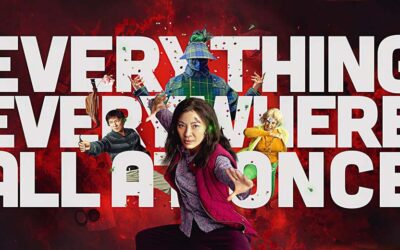By: Kianna Mahony Summer Intern 23, HDS’ 24
In the beginning God created heaven and earth… Or as the more popular remixed version goes, in the beginning Greta Gerwig created Barbie and Ken! Gerwig may not have set off to masterfully create an inverse of the Biblical Genesis narrative, but Alissa Wilkinson from Vox and Abby Aguire from Vogue highlight that she has certainly leaned into her feminist theologizing. An implied feminist spin on one of the most recognized religious stories in the world was not something I expected, but I embrace Gerwig’s guidance towards our better angels.
The tragedy of patriarchy is tackled in the new Barbie movie. The iconography of male domination is countered in the film by portraying women in positions of respect, power, and value. These positions have favored men in the arc of our humanity. Nonetheless, Barbie leans into its iconoclastic affairs by attacking society’s direct, structural, and cultural entanglement with the patriarchy. In continuation of Gerwig’s vision of an inverse reality, I spotlight the support that Barbie gives to both women and religion.
The beginning of Barbie welcomes the audience to Barbieland–a world in which there are no problems. Barbieland is a utopia where women are in charge. Construction work is run by women, the most adept doctors are women, and the President is a woman. There is even an all-female Supreme Court–a pipe dream that my heart wishes so badly would be fulfilled by my fellow Harvard peers. A girl can only imagine, which is exactly what Barbie wants us to do.
But, despite the transcendent nature of a utopian Barbieland, the real world still exists in all its infallibility. Barbie (Margot Robbie) finds this out the hard way when she makes the trek with Ken (Ryan Gosling) to Los Angeles in search of what is causing her existential dread. They discern that the real world is patriarchal–to Barbie’s dismay and Ken’s delight. After a series of twists and turns, Barbie leads the rest of the Barbies, Kens, and other dolls in Barbieland towards a greater understanding of self esteem and self empowerment.
Barbie’s positions on women empowerment and presence of an inverse cosmological narrative prompted me to think about the moments the movie pushed back against harmful religious attitudes.
Throughout many interpretations of religious history, male domination has persisted. The most popular religions by number of adherents–Christianity, Islam, Judaism, Hinduism, Buddhism–have men at the center of their origin stories. Men are the leading divine figures in many religions. Men are who we typically hear speak in the pulpits, temples, and sanctuaries every week. While I don’t discredit men’s contribution to humanity’s relationship with religion, I believe that the world would be a lot more peaceful with women at the helm of our religious experiences.
During an encounter with the Mattel CEO (Will Ferrell) in the real world, Barbie is subject to a religious insult that is a product of patriarchal harm. In a fit of anger, the CEO used the name Jezebel as an insult. Queen Jezebel is a figure from the Old Testament in the Bible whose evil spirit is said to have been responsible for destruction in the kingdom. Fulfilling Elijah’s prophecy, Queen Jezebel falls from a higher tower where upon impact she is attacked and eaten by dogs. As a result of Jezebel’s characterization, her name has been associated with promiscuity, corruption, and immorality.
However, I like to believe that centuries worth of patriarchy, misogyny, and violence have used the invocation of Jezebel as an excuse for men’s bad behavior. This utterance of the name Jezebel by the Mattel CEO demonstrates how entrenched this religious insult is in our everyday vernacular. Barbie’s shock and resistance to accepting the Jezebel characterization is just another reason why we need to appreciate this movie’s refreshing relationship with religion.
In a similar spirit, nearing the end of the movie, Barbie touches on humanity’s religious inclinations by reflecting on Barbie’s existential crisis. Ruth Handler, the creator of Barbie dolls, and Barbie share an emotional moment together where they talk about the nature of life. Handler comforts Barbie through her existential crisis by explaining that ideas like patriarchy and Barbieland were both created as a way for humans to deal with how uncomfortable life can be. I believe the same can be said for religion and its ability to deal with discomfort. The Barbie doll creator implies that some ideas and their manifestations happen to be more lifegiving than others. And as a result, the Barbie movie is urging us to imagine and propagate the ideas in our society that are the most lifegiving possible.
As we move forward with pearls of wisdom from Barbie, I implore everyone to continue envisioning an inverse and transcendent reality. A reality where we can support both women and religion without it being tragic nor iconoclastic.
.


